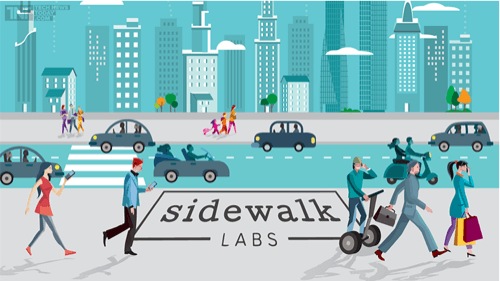New York is undergoing some interesting changes in the pedestrian world, having begun the installation of LinkNYC smart sidewalk kiosks throughout the city.
These new sidewalk kiosks offer pedestrians free device charging and tablets for web browsing, along with a 911 call button and the ability to make phone calls.
See Also: Are smart citizens getting lost in the rush to build smart cities?
Other kinds of smart kiosks can record car and bike movements, track wireless devices in close proximity, monitor street sounds and aid in identifying random packages, according to information gathered by Recode. Cities could, in the future, decide on what data to gather and use with the aid of smart kiosks, depending on what sensors kiosks have.
Sidewalk Labs is one company that is currently trying to sell the idea of their particular smart kiosks to cities, stating that communities will greatly benefit from the information that can be gathered.
“It is a win-win solution,” responds Alexei Pozdnoukhov, director of the Smart Cities Research Center at the University of California at Berkeley. “Cities get environmental sensing to meet public health regulations and figure out the ‘livability’ of streets, and companies get … a playground for building new services.”
Information gathered by these kiosks could aid cities with monitoring traffic situations, discovering gas leaks and testing air quality and likely improve safety in other ways too.
“Sidewalk suggests that the video sensors might spot ‘abandoned packages or objects,’ raising the possibility of the technology being used to foil terrorist incidents,” according to an article in Recode. “More mundanely, the company says the camera could also detect clogged drains and standing water on roadways.”
Privacy is a big concern among citizens
Despite the benefits, a big issue in regards to these kiosks is privacy and security for individuals. Although the company states that all the information gathered would be anonymous, encrypted and regularly erased, many people still voice concerns. The company also claims that no data will be sold to a third party such as Google, in answer to one of the many complaints issued.
However, The Village Voice does not agree, calling the kiosks “data-hoovering sentinels” that Google is using to extend “its near-monopoly on information about our online behavior to include our behavior in physical space as well.”
The New York chapter of the ACLU has also discussed privacy worries. Eventually, there are to be 7,500 kiosks installed throughout the city, with the gigabit internet infrastructure that links them, the free Wi-Fi, the phone calling and USB charging all offered for free to the city. LinkNYC kiosks will be managed by the CityBridge company.
“If CityBridge is using a business model that is not charging, and they are spending a bunch of money putting these things in, they are going to be monetizing the data hard,” Lee Tien, a lawyer with the Electronic Frontier Foundation, explained to The Village Voice. “That means that they are always thinking about how to collect your data and how to profit off of it.”
Despite the concerns, these kiosks can offer some great benefits to community members. Depending on the outcome of these in New York and the ones being pushed by Sidewalk Labs, you might see these kiosks popping up in your city in the near future.

















